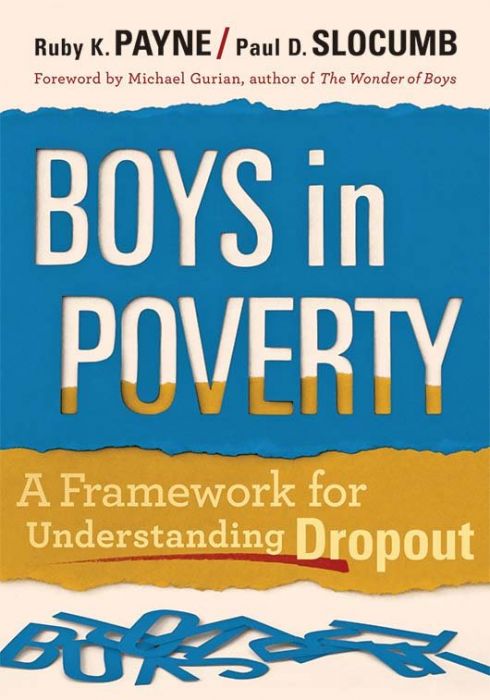
Boys in Poverty
A Framework for Understanding Dropout
Examine risks and interventions for dropout among boys in poverty. Explore dropout among sensitive, gay, gifted, ADHD, and postadolescent males.
Boys in Poverty
Examine the risk factors for dropout among males living in poverty, especially generational poverty. Explore personal, community, and school system issues, including family dysfunction, disability, poor teaching, punitive discipline, and absence of differentiated instruction. Offering specific interventions, the book focuses on boys physical, emotional, cognitive, and social development and the unique problems of sensitive, gay, gifted, ADHD, and postadolescent males.


- Discover how neuroscience can explain boys development.
- Understand the negative impact of media on perceptions of masculinity.
- Leverage specific resources and interventions to reduce dropout risk factors.
- Learn how your school or district can calculate revenue lost to dropout.
Related Topics
Additional Information
“What drives so many youths to abandon their education? [This book] looks at the reasoning behind nearly a third of American youths not graduating high school. Authors Ruby Payne and Paul Slocumb research the causes of this epidemic, trying to find the reasons why America's educational values fall so much. From social issues to problems with the school and much more, [this book] is a fascinating read with much to enlighten and educate with.”
“The subject matter is timely, addressing two factors continually linked to undesirable outcomes in school: being male and poor. The consistent organization of the chapters also allows for easy reading, and the recommendations at the end of each chapter provide parents and educators with readily available strategies they can implement with children of any age. Moreover, the appendices provide useful resources, including formulas for calculating the cost of dropping out and questionnaires for assessing available student resources, allowing for educational planning. Also described are activities for students geared toward goal-setting, planning, and identifying emotions.”
When can I access my eBook? Your eBook will be accessible through VitalSource once your payment has been processed.*
*When using a check or purchase order, the order submitted online will not be processed until Solution Tree receives the check or a copy of the signed official purchase order. Your purchase order must note payment terms of net 30 days. We cannot process purchase orders that do not note these payment terms. Please submit all payments to [email protected].
How do I access my eBook?
To access your eBook:
- Create a free VitalSource account by visiting VitalSource.com. If you already have a VitalSource account, please log in to your account.
- Paste the redemption code that Solution Tree will email you in the “Redemption Code” field on VitalSource.com/Redeem. (Note: You can also access your redemption code within your Solution Tree account under the “eBook” section.)
- Click “Redeem.”
- Enjoy! Once your code is redeemed, your book will be added to your VitalSource Bookshelf and can be read anytime, anywhere.
What are the technical requirements for accessing the eBook? A VitalSource account is required. To sign up for your free account, please visit VitalSource.com.
What if I have trouble accessing my eBook? Please contact VitalSource by emailing [email protected] or by utilizing their Live Chat feature.
What are the shipping and handling costs? There are no shipping or handling costs associated with eBooks. For paperback and hardcover book purchases, standard shipping costs apply. Please visit the Product Orders page for more information on shipping and handling costs.
Can I purchase multiple copies of the same eBook? Bulk orders are not currently available through the website. Website purchases are limited to one eBook per title, per account. If you want to order multiple copies of an eBook, please contact customer support at [email protected].
What if I need to request a refund on my eBook order? RETURN POLICY: We are unable to accept returns or cancel previously placed eBook orders.
